Make sure you never miss an update. subscribe to the progress update newsletter
In this issue:
Features
Fish Forever Program Round-Up
The Science of Fish Forever
Features
 Beyond the Health Crisis: Mayors Facing the Economic Challenge of COVID-19
Beyond the Health Crisis: Mayors Facing the Economic Challenge of COVID-19
The global pandemic is increasing the pressure on coastal fisheries as more people turn to fishing to provide food and income. But mayors and local leaders in the Philippines and Indonesia are meeting the challenge.
 When Nets Catch More Than Fish
When Nets Catch More Than Fish
Honduras is home to some of the Western Hemisphere’s most marginalized communities. Facing COVID-19, their strong social fabric—as displayed by one community’s Savings Club—is helping them weather the storm.
 Small-Scale Fishers are Essential
Small-Scale Fishers are Essential
COVID-19 has disrupted supply chains worldwide. Coastal fishers, who feed their rural communities, feel these impacts acutely. In this video from Bloomberg Philanthropies’ Vibrant Oceans Initiative (VOI), we see how Rare is working with local communities to protect fishing resources and promote sustainable fishing practices—despite the pandemic.
Fish Forever Round-up
Global
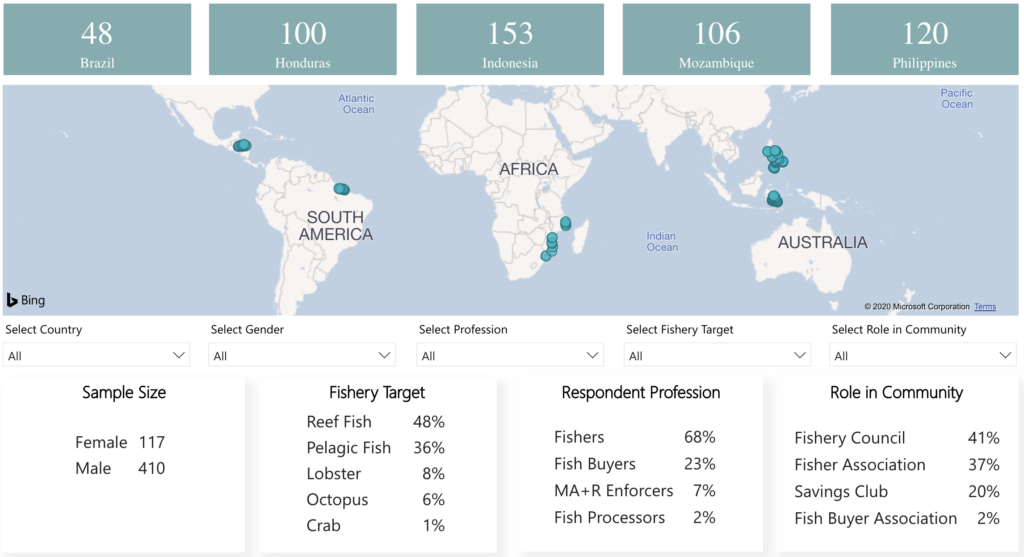
Fish Forever Data Portal: Rare recently launched the Fish Forever Portal to put data, program materials, and tools into the hands of decision-makers and practitioners working on coastal fisheries reform. The portal provides new methods of remote support and increased digital sharing with our practitioners and partners around the world – both of which were significant before the pandemic and are now essential because of it.
COVID-19 Program Surveys: Numerous reports suggest that small-scale fisheries’ fish catch volume and value have declined worldwide since COVID-19 began. Earlier this year, Rare and partners conducted interviews in each Fish Forever country with fishers and fish traders to better understand the pandemic’s impact on fishing communities. Visit our data portal for full results. For an in-depth look into one country, read the survey results from Indonesia’s Southeast Sulawesi province.
Fishing Microenterprises for Green Recovery: Starting this fall, through a grant from the German government’s Federal Ministry of Environment, Nature Conservation, and Nuclear Safety (BMU) through the International Climate Initiative (IKI), Rare will pilot green recovery measures in coastal communities. The project will focus on strengthening the role of microenterprises—specifically community-based fishing businesses—and local government’s business support services to help communities ‘build back better’ in the heart of the rural economy. Rare will integrate this work into the existing Fishing for Climate Resilience project.
Rare on the Global Virtual Stage: Rare co-hosted a session with the Global Island Partnership and the Local 2030 Islands Network in which speakers from the Philippines, Palau, Papua New Guinea, the Green Climate Fund, and the Australian Government shared their experiences in supporting the small-scale fisheries sector through ecosystem-based adaptation measures. Featured speaker, Mayor Mary Jean Te of the Libertad Municipality in Antique (a Fish Forever partner), focused on climate-friendly solutions from coastal communities in recovering from the COVID-19 pandemic. Listen to the recording or learn more about the virtual convening series.
Rare will co-host a session on September 24, 2020 on “Community-led Nature-Based Solutions for Adaptation: lessons for building back better from COVID-19” at the CBA14: 14th International Conference on Community-based Adaptation to Climate Change, together with other FEBA members. Vice Mayor Coro of the Del Carmen Municipality (a Fish Forever partner) will be a featured speaker during this session. See the full program.
Indonesia

A Milestone Meeting with the Minister: In late August, members of our Fish Forever Indonesia team met with the new Minister of Marine Affairs and Fisheries for the first time. Following the meeting, Minister Prabowo affirmed his commitment to being “Rare’s counterpart” in improving communication with fishers and ensuring greater economic benefits for fishing communities.
A Partnership for Coastal Mayors: In August, Rare and program partners launched the “Partnership for Coastal Mayors” across Southeast Sulawesi and North Sulawesi provinces. With support from the Minister of Home Affairs, 32 local government leaders from both regions participated in virtual events to sign Fish Forever’s local leader pledge for fisheries reform. This commitment connects directly to the Sustainable Development Goal 14: Life Below Water and a commitment to healthy and sustainable fishing communities.
Sustainable Blue Financing: In May 2020, Rare published a white paper on “Blue Infrastructure Supporting SDG 14 in Coastal Communities in Indonesia” outlining blue infrastructure solutions and blue adaptations to traditional infrastructure that sustainably address coastal communities’ needs.
Philippines
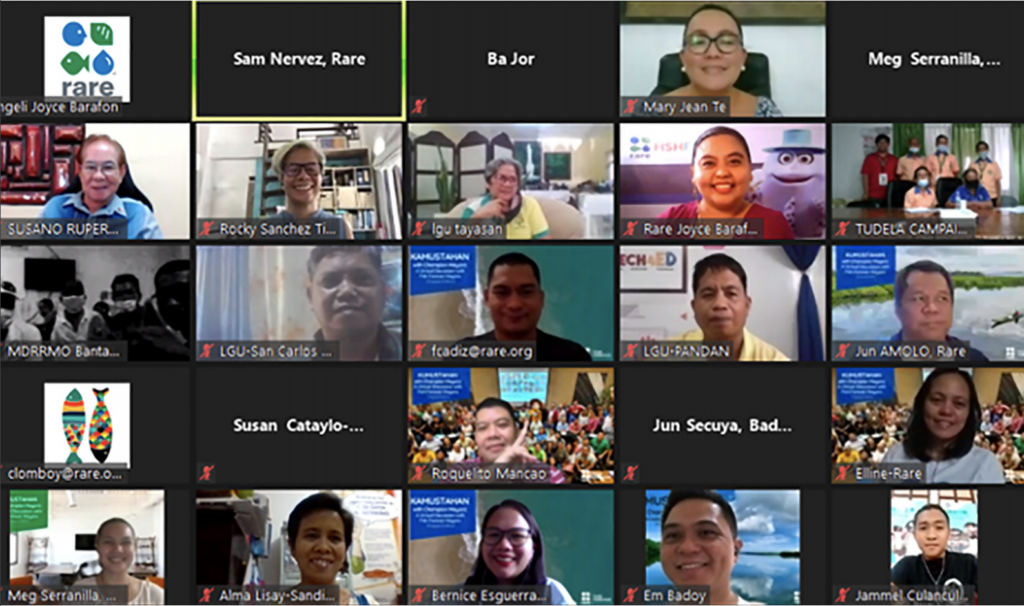
Mayors’ Perspectives on COVID-19: Rare is regularly hosting virtual gatherings with champion mayors and campaign teams to share strategies for ensuring food security and protecting their fisheries in the face of COVID-19. Read the report from the first two gatherings. For a first-hand account of mayors on the frontlines of ensuring food security, read the guest blog by Vice Mayor Coro II of the Philippines’ Del Carmen Municipality (a Fish Forever Partner) in Siargao, Surigao del Norte.
Financing the COVID-19 Recovery: In June, Rare co-sponsored a forum with the Bureau of Local Government Finance – Department of Finance to help mobilize resources for local government recovery efforts. Read the report.
Brazil
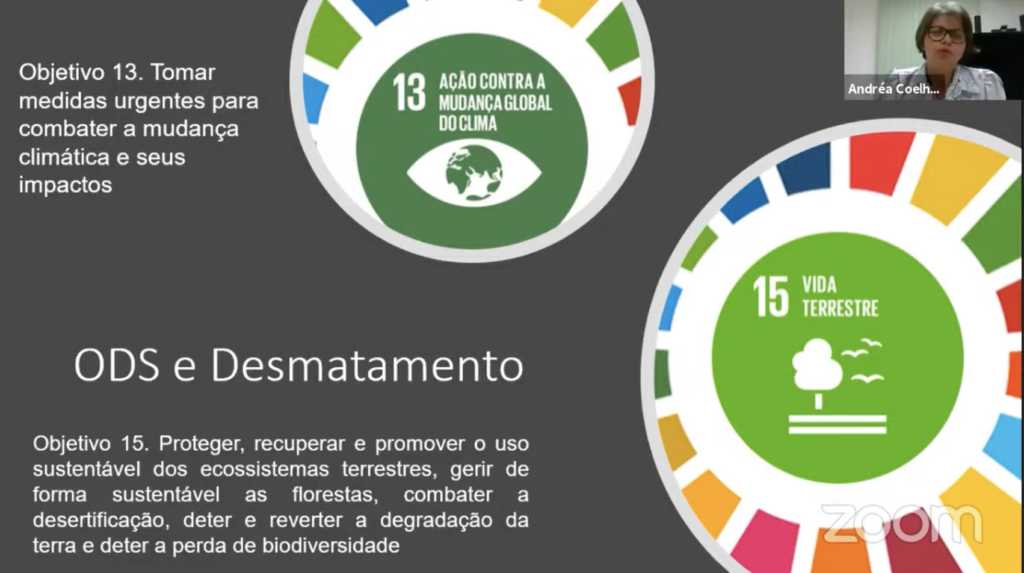
The 2030 Agenda + strengthening fisheries management bodies and savings: Over the last few months, Rare Brazil has hosted 19 webinars, one every other week with the Pará state government, to facilitate the inclusion of fisheries and coastal management topics in the United Nations 2030 Agenda for Sustainable Development. In addition, Fish Forever has strengthened five management bodies established within RESEX boundaries, through weekly virtual trainings with ICMBIO’s implementing teams and the Pará state government, and has helped three fishing communities set up savings clubs.
RESEX Video Series: Follow Rare Brazil and partners on a journey along the coast of the country’s RESEX areas, and hear from those managing the coastal fisheries (in Portuguese).
Mesoamerican Reef
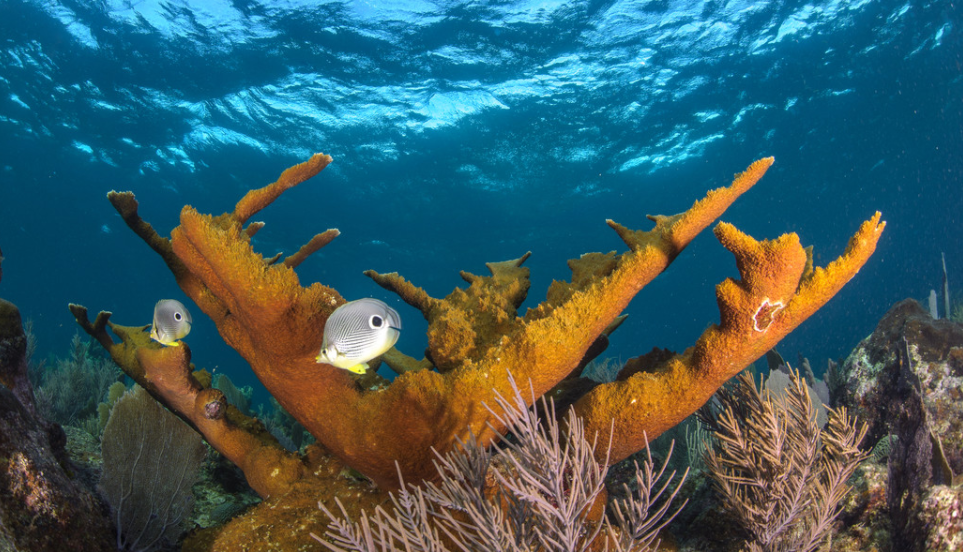
Digital campaign launch: In June, Fish Forever in Honduras launched the Pescando Para la Vida/Fishing for Life behavior adoption campaign using digital platforms across two municipalities. A series of pandemic-adapted campaign events hosted by Rare and local partners across fishing communities in the Santa Fe municipality have followed the launch. One such event reinvigorated a long-lost local tradition—a canoe race among fishers using traditional sailing canoes—to promote the campaign, foster pride in the community’s fishery, and highlight their significant contributions towards food security, livelihoods, and community resilience. Watch this video to witness this exciting race and hear reflections from mayors and fishers.
Pacific Islands
Palau and Federated States of Micronesia (FSM)

Signing on to Fish Forever: The Palau state governments of Melekeok and Ngiwal recently signed MOUs with Rare to implement sustainable coastal fisheries management in their coastal waters. The work includes setting up managed access areas with networks of reserves, building local management bodies, and running behavior adoption campaigns.
Household Surveys: The Rare Pacific team is busy conducting household surveys across five municipalities in Pohnpei in the Federated States of Micronesia. These standardized surveys, used across all Fish Forever countries, provide baseline information on fisher knowledge, attitudes, practices, and socio-economic conditions, and will inform climate vulnerability assessments and fisheries management plans.
Mozambique
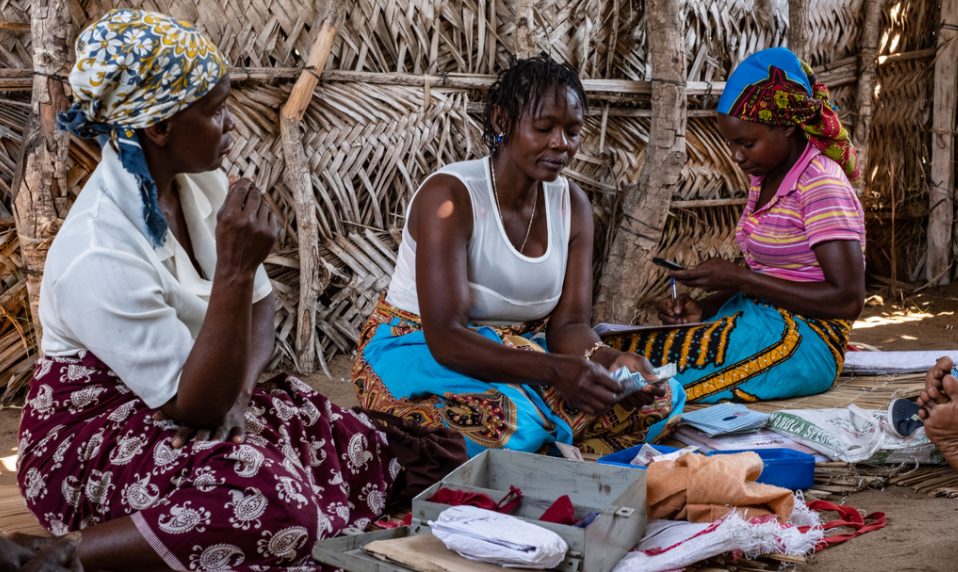
Landmark Regulation for Coastal Fisheries: On September 1, 2020, the government of Mozambique approved a landmark regulation empowering community-based fisheries management while paving the way for healthier ocean ecosystems. The revised Fisheries Maritime Regulation (REPMAR) is a major step toward giving coastal communities the formalized right to access and steward coastal waters for their fisheries. It also enables communities to set up locally managed marine reserves where fishing and any other invasive activities are off-limits allowing fish populations to rebound.
Alternative Livelihoods: Since April, with support from IUCN and SIDA, Rare has supported fishing communities in developing 19 business plans to reduce dependency and alleviate pressure on fishing grounds. Examples include a goat farm, a community grocery store (self-funded by savings from fishing through savings clubs), and an integrated mangrove reforestation project linked to honey. Rare Mozambique works with fishing community members to identify and develop business plans for these microenterprises. The program will continue to support new community-based businesses through the Blue Action Fund project.
The Science of Fish Forever

Good Governance and Local Management Improve Marine Protected Area Outcomes (in review)
Robert Y. Fidler, Gabby N. Ahmadia, Amkieltiela, Awaludinnoer, Courtney Cox, Estradivari, Louise Glew, Christian Handayani, W. Peni Lestari, Shauna L. Mahajan, Michael B. Mascia, Fitryanti Pakiding, Shinta Pardede, Dominic A. Andradi-Brown, Stuart J. Campbell, Kelly Claborn, Matheus De Nardo , Helen E. Fox, David Gill, Nur I. Hidayat, Raymond Jakub, Duong T. Le, Purwanto, Abel Valdivia, and Alastair R. Harborne. (in review) Good Governance and Local Management Improve Marine Protected Area Outcomes. Nature.
This study demonstrated that multi-used protected areas can significantly increase fish biomass through resource governance and underlying social-ecological contexts. The authors show that the positive impacts of resources governance are amplified when indigenous people and local communities can manage their own resources through access rights. This suggests that multi-use protected areas that enhance the autonomy and economic development of local communities can foster conservation and human development.
Impact of COVID-19 on small-scale coastal fisheries of Southeast Sulawesi, Indonesia (in review)
Stuart J. Campbell, Raymond Jakub, Abel Valdivia, Haris Setiawan, Agus Setiawan, Courtney Cox, Askabul Kiyo, Darman, Lely Fajriah Djafar, Emilio de la Rosa, Wahid Suherfian, Ade Yuliani, Hari Kushardanto, Umi Muawanah, Arwandrija Rukma, Taufiq Alimi, and Stephen Box (in review). Impact of COVID-19 on small-scale coastal fisheries of Southeast Sulawesi, Indonesia. Ocean & Coastal Management.
This study quantifies the effects of COVID-19 on small-scale fisheries across Indonesia’s Southeast Sulawesi province. The analysis shows that active fishers and traders reporting catch data declined by more than 60% after the pandemic was announced. Although average catch per trip increased across these active fishers, fish price declined. Interviews with 185 fishers and traders revealed that low demand and price reduction primarily caused disruption, highlighting the lack of alternative livelihoods to cope with unforeseen disruptions.
The COVID-19 Pandemic, Small-Scale Fisheries and Coastal Fishing Communities (May 2020)
Bennett, Nathan J., Elena M. Finkbeiner, Natalie C. Ban, Dyhia Belhabib, Stacy D. Jupiter, John N. Kittinger, Sangeeta Mangubhai, Joeri Scholtens, David Gill, and Patrick Christie. The COVID-19 Pandemic, Small-Scale Fisheries and Coastal Fishing Communities. (2020): 1-11.
This editorial assesses the implications of the pandemic for small-scale fishers, fisheries, and their coastal communities based on global news and reports. Pandemic impacts mostly included fisheries shut-downs, market disruptions, increased health risks for people, and increased illegal, unreported, and unregulated fishing. However, silver linings exist, such as the revival of local food networks, marketing and deliveries, collective actions to safeguard rights, and increased collaborations between communities and governments.
Evidence of Overfishing in Small-Scale Fisheries in Madagascar (June 2020)
Gough, C.L., Dewar, K.M., Godley, B.J., Zafindranosy, E. and Broderick, A.C., (2020). Evidence of Overfishing in Small-Scale Fisheries in Madagascar. Frontiers in Marine Science, 7, p.317.
This study evaluates widespread overfishing in the small-scale fisheries in western Madagascar. Using length-based data of over 17,000 fishing trips and 120,000 individuals fish records over a two-year period, the analysis found that fishing mortality exceeds natural mortality in 65% of the most common species. Most species were caught before reaching maturity, few species were fished at their optimal size, and low numbers were large enough to be considered mega-spawners. This study suggests that overfishing threatens the income, food security, and well-being of vulnerable coastal communities.
Securing sustainable small-scale fisheries: Showcasing applied practices in value chains, post-harvest operations and trade
Zelasney, J., Ford, A., Westlund, L., Ward, A. and Riego Peñarubia, O., 2020. Securing sustainable small-scale fisheries: Showcasing applied practices in value chains, post-harvest operations and trade (Vol. 652). FAO Fisheries and Aquaculture Technical Paper; Rome Iss. 652, (2020): 0_1,1-172,I-X.
This FAO report showcases several initiatives designed to promote and improve market access by enhancing value chains, post-harvest operations, and trade in small-scale fisheries. The report also provides guidance on achieving equitable market access and distribution of benefits for small-scale fishers. In addition, the report highlights the need to strengthen the capacity of post-harvest operations to reduce losses and improve processing.
Fish Forever: A solution to coastal overfishing – delivered by empowering communities through clear rights, strong governance, local leadership, and participatory management – that protects essential fish habitat and regulates fishing activities to replenish and sustain coastal fisheries.
Goal: To deliver replicable and scalable community rights-based management across ten countries, using a global network of 500 local leaders to secure livelihoods for one million fishers, alleviate poverty, ensure food supply, and protect coastal ecosystems from chronic threats.
Fish Forever Countries: Philippines, Indonesia, Mozambique, Brazil, Honduras, Guatemala, and the Pacific Island countries of Palau and the Federated States of Micronesia.
Fish Forever is possible thanks to the support of many, including the following current donors:

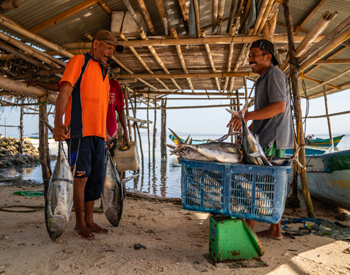 Beyond the Health Crisis: Mayors Facing the Economic Challenge of COVID-19
Beyond the Health Crisis: Mayors Facing the Economic Challenge of COVID-19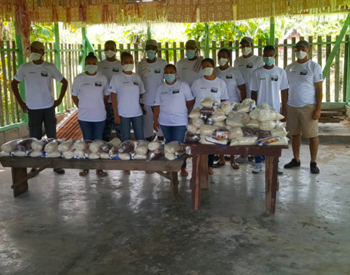 When Nets Catch More Than Fish
When Nets Catch More Than Fish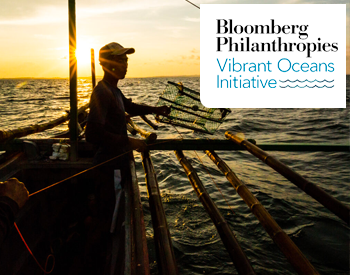 Small-Scale Fishers are Essential
Small-Scale Fishers are Essential